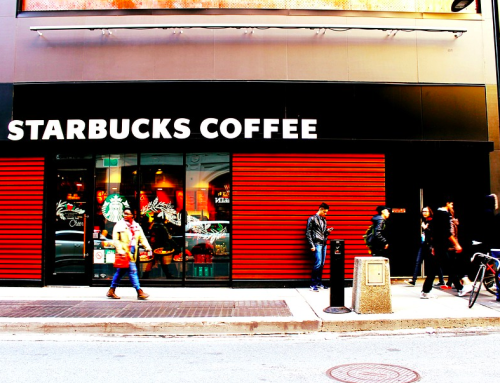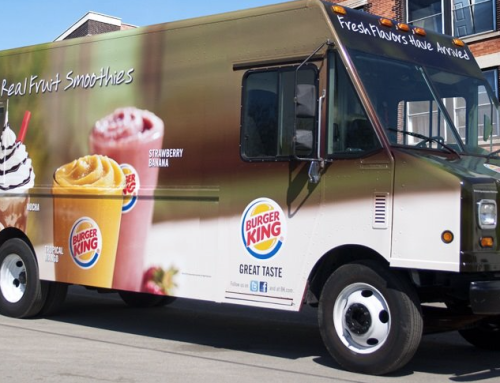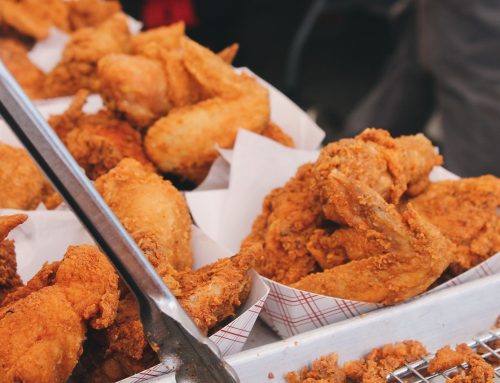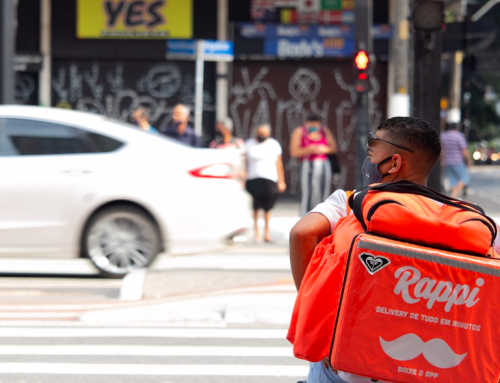For rock climbers, fishing enthusiasts, hikers, campers and other outdoorsmen who spend a lot of time off the electrical grid, maintaining cold food and drink in the back country is a godsend. And YETI coolers are known to keep food cold for days without spoiling. As the owner of a YETI myself, I can attest to the quality of the companies products.
YETI is known for manufacturing high-quality and durable coolers, ice chests, tumblers, coffee mugs and other products sought by avid outdoorsmen. In Q4 of 2021 alone, the company generated $443.1 million total revenue. But there are risks to the Austin-based YETI brand that shouldn’t be overlooked.
For one, there are numerous competitors like RTIC entering the space that promise similar results with a significantly lower price tag. In this study, I dive into the strengths, weaknesses, opportunities, and threats that for the YETI brand over the next 5 years.
Strengths
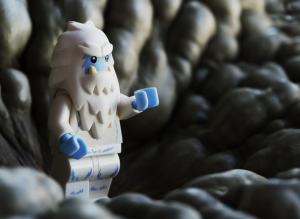
A cold weather Yeti.
- According to the CEO Matt Reintjes, the company has a deep pipeline of new products that can go to market. As YETI continues to roll out new products like coffee mugs and other apparel, brand awareness and sales should continue to increase.
- With a large number of outlets in every state, and with various retailers selling their products, YETI has an expansive reach all across the country. In addition, YETI has solid relationships with its dealers. The company enjoys the support of a robust distribution network that ensures that the products are always in stock and available to a large number of people.
- With such strong business relationships mentioned above, dealers and resellers also help in promoting YETI products. Major retailers that sell YETI products include Lowe’s, DICK’s Sporting Goods, and Cabela’s.
Related Reading: SWOT Analysis for Outback Steakhouse: A Floundering Chain with Hope?
- YETI makes use of low-cost operational structures that enable the company to produce its products at low cost and still maintain a high-quality standard. Being sold at high-end prices, the company can gain massive profit margins. Additionally, YETI products are actually reasonable for those who are looking for high-quality coolers, ice chests, and similar products.
- YETI has generated consistently good profits along with accumulated profit reserves. It also has a big asset base, enabling improved solvency. All these allow the company to easily pour money into future capital expenditures.
- YETI relies heavily on automation to manufacture its products. This enables more efficient utilization of resources while reducing costs. At the same time, automation ensures that the quality of the products being churned out from the production line remains the same. Automation also makes their production volume versatile; the company can scale the production up or down depending on the market demand.
- YETI has put a lot of investment and effort in training their employees extensively. As a result, it has a significantly large inspired and skilled workforce. The workforce is also diversified, with employees of different educational, cultural, and racial backgrounds. This diverse workforce brings creative, fresh, and diverse ideas and methodologies to improve YETI’s operations, sales, marketing, and so on. Also, YETI employs qualified, certified, and accredited professionals in the team to manage, analyze, and recommend actions to improve all aspects of the business.
- YETI owns several intellectual property rights which include patents and trademarks. This exclusivity prevents competitors from copying or reverse-engineering YETI products.
- YETI has a major digital presence in the form of an easy-to-use, interactive website and millions of followers on their social media platforms. Their digital channels draw in high customer engagement levels, reduce low customer-response time, increase their online reach, and attract internet traffic and sales.
- YETI has an extensive product portfolio, from mugs to ice chests. Combined with their number of outlets, retailers, and resellers, they have a massive edge in distribution over their competitors.
- Although YETI is relatively new, the brand has made a name for itself thanks to its high-quality products. Brand awareness is high among its target market.
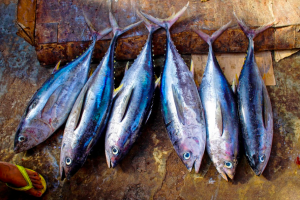
Keep fish fresh with a YETI Cooler.
Weaknesses
- Although their products retain their high quality, YETI spends less than some industry players in terms of research and development. This complacency can cost them their market share as competitors find ways to bring out more innovative products.
- CEO Matt Reintjes warned investors about supply chain issues in 2022 when providing forward looking insights about the company. Like so many other companies, YETI’s coolers are manufactured in China. This means the product must be delivered on container ships into the United States. There have been numerous challenges with manufacturing and shipping due in part because of government lockdowns in the country.
- YETI rents, rather than owns, a large part of their properties. As such, the company pays significant amounts of rent, which adds to their operational costs.
- YETI’s ability to satisfy its short-term financial obligations is somewhat lower than the industry average. In addition, YETI has lower levels of current assets than current liabilities. These factors can cause liquidity issues in the future.
- There seems to be an unsatisfactory degree of proper financial planning when it comes to cash flows. This often leads to insufficient cash flow, which subsequently leads to unneeded and unplanned borrowing.
- YETI has several failed mergers and integrations. They even once issued a product recall. All these can hurt the business’s brand and reputation (see Short History below).
- Although YETI’s workforce is diversified, the majority still consists of local white workers. This means that workers of other racial or cultural backgrounds are a minority. Most of the recommendations, management, decisions, and more come from Americans. This could lead to an underutilization of talent.
- YETI is reported to have a high employee turnover rate despite its generally positive work atmosphere. As more people leave their jobs, the company has to shell out more time, money, and effort to train and develop new employees. Lately, company politics have decreased employee morale. The resignation and subsequent shortage of skilled and qualified employees put the company at risk due to the lack of good talent.
- Only a few YETI products have a high market share while most have low market shares. That means, YETI over-relies on these few products, making the company susceptible to external threats.
- Despite the high quality of YETI products, the company allocates a low budget for quality control compared to its competitors. This could possibly lead to lower-quality products that would hurt the company’s branding and reputation.
Opportunities
- The prevalence and popularity of e-commerce—which was the preferred mode of purchase at the height of the COVID 19 pandemic— adds another channel for sales for YETI. In other words, YETI can open online stores to sell its products.
- In addition to Facebook, Instagram, Twitter, and YouTube, new and popular social media channels such as Tiktok can be used to promote YETI products. They can hire production, social media, and content management teams to create and post innovative and attention-grabbing content. Since YETI serves people that want to get out into the outdoors for fishing, hiking, and other activities, it makes creating compelling social media content pretty easy.
- New developments in manufacturing technology, computer technology, automation, Internet capability, and other aspects provide numerous benefits to many departments. For instance, new automated machines can produce consistently high-quality, durable products at reduced costs. New computer and Internet technology allow them to collect a higher volume of comprehensive data that can be used to improve customer service and marketing efforts.
- Consumer spending in the country has increased thanks to an increase in average household income. This means that more people, even those previously unable to buy YETI products, can now afford one. This could potentially open up new markets for the business.
Related Reading: Dunkin’ Donuts SWOT Analysis: The Hidden Weakness
- In addition to increased consumer spending, the national population has been on the rise. This population boom is expected to continue for the next few years. The increased population also gives YETI an opportunity to explore new markets.
- YETI can make environmentally friendly products not just to satisfy a market that demands products that do not harm the environment. They can also take advantage of the government’s subsidy on the sale of eco-friendly products.
- With the country opening up to tourists, YETI can capitalize on this opportunity. Many tourists are beachgoers, backpackers, fishing enthusiasts, and outdoorsmen—the very market that YETI is serving.
- YETI can expand to other countries. This move will give them new and unique opportunities as well as gain access to new markets.

Serious campers rely on YETI products.
Threats
- Competitors are now using or developing new technologies to improve their manufacturing, operations, marketing, customer service, and all other aspects of their business. Customers who are familiar, attracted, or have benefited from these technologies will be drawn to these competitors.
- New competitors such as Otterbox, Hydro Flask, ORCA, and RTIC can chip away YETI’s market share as they introduce high-quality but cheaper products. Also, the downward pressure on prices may force YETI to lower their prices as well, reducing their profits. If YETI chooses to maintain its high prices, it might lose its market share.
- Over the years, the bargaining power of suppliers has increased as a result of the decrease in the number of YETI product suppliers. This could increase the company’s cost of inputs.
- Political uncertainties and changing regulations can be obstacles to YETI’s planned expansions. Fluctuating interest rates puts the company at risk in the face of an unstable financial and economic environment. All these can hold back the company’s performance and/or force them to incur unnecessary expenses.
- If YETI decides to expand internationally, the company has to contend with issues such as fluctuating exchange rates, stricter regulations on international trade, rising prices of fuel, comprehensive compliance, and more.
Near Term Risks
- Consumer preferences and needs are always changing. These changes put pressure on YETI, forcing them to constantly adapt to their market’s taste. This continued adaptation can stress their operations, finances, marketing efforts, and so on.
- Competitors are now leveraging social media and using imaginative content to promote their own products, saturating the market. This makes it more challenging for YETI to sustain effective promotional messages.
- Resorts, inns, established campsites, cottages, stopovers, stores, and similar facilities have threatened the company. Before, outdoorsmen had to bring their own coolers, mugs, and ice chests. With the construction and emergence of these establishments near the usual hiking trails, lakes, beaches, and other areas, outdoorsmen no longer need to carry their own beverage-cooling equipment.

My 2016 Mercedes Sprinter van converted into a camper.
YETI Products
YETI manufactures high-quality ice-chests, ice chests, vacuum-insulated stainless-steel mugs and tumblers, and other related accessories. However, their bestsellers are their high-quality coolers, which were the brainchild of the Sieders brothers. These brothers were two outdoorsmen who were frustrated with existing coolers that couldn’t keep their catch and beverages cold for a longer period of time. To address the problem, they teamed up with a Philippine factory to create an incredibly tough cooler with superior ice retention.
The company’s usual customers are hunters, fishing enthusiasts, outdoorsmen, beachgoers, and watersports enthusiasts. The brand regularly sponsors and organizes hunting and fishing shows.
YETI’s products are known to be on the higher end when it comes to prices, with some items selling for more than $500. Its most expensive item is its 82-gallon cooler that sells for $1,300.
Related Reading: SWOT Analysis for Red Bull: The Overlooked Threat of this Energy Drink
Other popular YETI products include the Tundra series, which can be locked with twin padlocks. This makes it bear-resistant, which is ideal when camping in the woods. Another YETI cooler model, the Hopper series, is lightweight and transportable. Finally, YETI manufactures the YETI tank, which is an ice bucket, and the Rambler line of 14-oz. drinkware products.
Various retailers such as Bass Pro Shops, Academy Sports and Outdoors, West Marine, Cabela’s, REI’s, Dick’s Sporting Goods, and Amazon Marketplace sell YETI products.
YETI’s rambler was named “The Best Mug Ever Made” by Outside magazine. In a similar manner, its YETI Base Camp Chair was described by Field & Stream as a “dedication to a comfy derrière.” The chair is also called a “status symbol in the US” as considered by the Business Insider.

Safely store food like meat and eggs with a YETI cooler.
Short History
YETI Holdings, based in Austin, Texas, has a fairly recent history. It was founded by brothers Roy and Ryan Seiders in 2006. Both brothers are outdoorsmen with fishing as their main passion. Both brothers were frustrated at the poor quality of the available coolers in the market. Thus, they created their own high-quality, and from these creations, YETI was born.
In 2012, the private equity firm Cortec Group bought a two-thirds stake from YETI for $67 million.
In mid-2016, YETI filed for an initial public offering so it could be listed on the New York Stock Exchange. It sought a valuation of $5 billion in the hopes of raising $100 million. Two years later, YETI retracted its IPO due to “market conditions.” However, in October 2018, YETI became a public company via an IPO offering 16 million shares at $18 a share.
YETI opened its first flagship store in Wicker Park, Chicago in September 2019. Presently, they have multiple store locations in Dallas, Denver, and Florida. The company is a sponsor of the Professional Bull Riders, Inc. and the YETI “Built for the Wild” event.
Despite YETI’s positive development, they did have a number of setbacks. For example, in April 2018, the National Rifle Association ceased its agreement with YETI as the association’s official supplier of coolers. This created a severe backlash from NRA members, prompting many to destroy their purchased YETI products.
In another incident in November 2020, YETI recalled a consumer product safety recall for almost a quarter of a million Rambler mugs, which were manufactured in China. The US Consumer Product Safety Commission cited the product’s magnetic slider on the lid, which can possibly malfunction and cause hot liquids to spill. The Commission said the product can cause injury and burns.
Final Thoughts
YETI is a well-known and reputable brand that outdoorsmen love. The company’s products are proven to be sturdy, reliable, and worth every cent. Thus, you can’t go wrong if you go ahead and put these in your store’s inventory.

